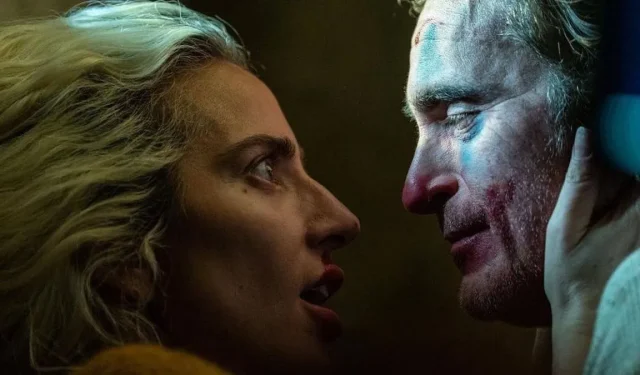
The much-anticipated release of Joker: Folie à Deux has arrived in theaters, but the reception has been anything but successful.
The first installment of Joker was a massive success, cultivating a dedicated fanbase and spawning numerous memes. Conversely, this sequel has faced an onslaught of criticism from both observers and enthusiasts of the original film, largely attributed to its contentious conclusion.
Warning: Spoilers and themes of sexual assault discussed.
Arthur Fleck, known as the Joker, finds himself standing trial for mass murder, with authorities aware of five fatalities, including the three employees of Thomas Wayne, Randall, and Murray Franklin. As Arthur hears the emotional testimony from Gary, a witness to Randall’s murder, an unexpected and alarming incident occurs: it’s suggested that he suffers sexual assault at the hands of the guards within Arkham. That same night, the guards kill another inmate who admired Arthur.
Overcome by the sheer horror of his circumstances, Arthur disavows the Joker in court, only to have chaos erupt as a car bomb detonates in the courtroom. Surviving the explosion, he reconnects with his girlfriend Lee, who informs him that the fantasy of being the Joker was all they had, before leaving him. Eventually, Arthur is recaptured and returned to Arkham, now facing a death sentence. He is brutally stabbed by another inmate, bleeding out as the assailant carves the iconic Joker smile into his own face.
The film packs a lot into its narrative, leaving audiences puzzled about its true purpose. Is it merely an origin tale for a different iteration of the Joker, one that remains largely unexplored? Does it serve as a critique of the fans who reveled in Arthur’s acts of violence? Or is it simply a display of overwhelming despair? Director Todd Phillips suggests the film aligns more with the first interpretation, as odd as that may sound. He explained in an interview with Entertainment Weekly shortly after the film’s release:
“When those guards kill that kid [the Joker fanboy in Arkham], he realizes that dressing up in makeup and adopting this persona isn’t changing anything. He starts to accept that he has always been Arthur Fleck; he has never embodied what Gotham imposes upon him, nor the idea that he represents. He is an unwitting icon placed into this role, and he no longer wishes to live a facade — he desires to embrace his true self.”
However, fans argue back, questioning whether this identity was imposed on him. Arthur exhibited a clear desire to become the Joker in the initial film, willingly choosing violence. Phillips argues that Lee’s perception of Arthur is confined to viewing him solely as the Joker until she breaks up with him, marking the sole moment she recalls his real name. “[She’s] realizing, I’m on an entirely different path, you can’t be who I envisioned you to be.” Once he sheds the Joker persona, her interest wanes for the damaged, vulnerable Arthur.
In a separate discussion with IGN, Phillips stated that he never intended for Arthur Fleck to be viewed as the definitive Joker. He opined:
“The first film is titled Joker. It is not dubbed The Joker; it’s simply Joker. From the outset of the script, it was labeled as ‘an origin story,’ rather than ‘the origin story.’ This concept implies that maybe this isn’t the Joker we know. Perhaps this serves as the foundation for the Joker’s creation. Essentially, what you are left pondering at the film’s conclusion is ‘What on earth is going on behind him? Is that person truly him?’
However, does this stance seem like a convenient escape? In the same interview, Phillips noted that Joker established Arthur Fleck as significantly older than Batman, a stark deviation from the established Batman lore, yet the initial film distinctly suggested that Arthur was indeed the Joker, not just one of many. Fans on social media have taken to criticizing the retcon elements, the film’s ending, and other aspects of the production with fervor.
To those who claimed The Marvels flopped because nobody wants to see a female-led comic book film. Can I now assert that Joker 2 failed because audiences aren’t keen on a comic book movie led by a white male? pic.twitter.com/noQ7Q9Ow1s
— Bob Chaos??? (@OrgChaosForever) October 6, 2024
Sony realizing that Madame Web received a better CinemaScore than Joker 2: https://t.co/hcTC8Jg50j pic.twitter.com/dmVb1krcN5
— Aaronado (@_CRSCNDLLS_) October 5, 2024
Further criticisms have included the musical sequences feeling out of place, Lady Gaga’s role as Lee being underutilized, and the neglect of key plot points from the original, such as Bruce Wayne’s traumatic experience of witnessing his parents’ murder. The film has suffered from a meager 33% approval rating on Rotten Tomatoes, with an even lower audience score of 31%. Financially, it has yet to break even, marking it as a significant flop. Nevertheless, fans appear to derive satisfaction from mocking the film, which, oddly enough, might be exactly what the Joker would desire.




Leave a Reply